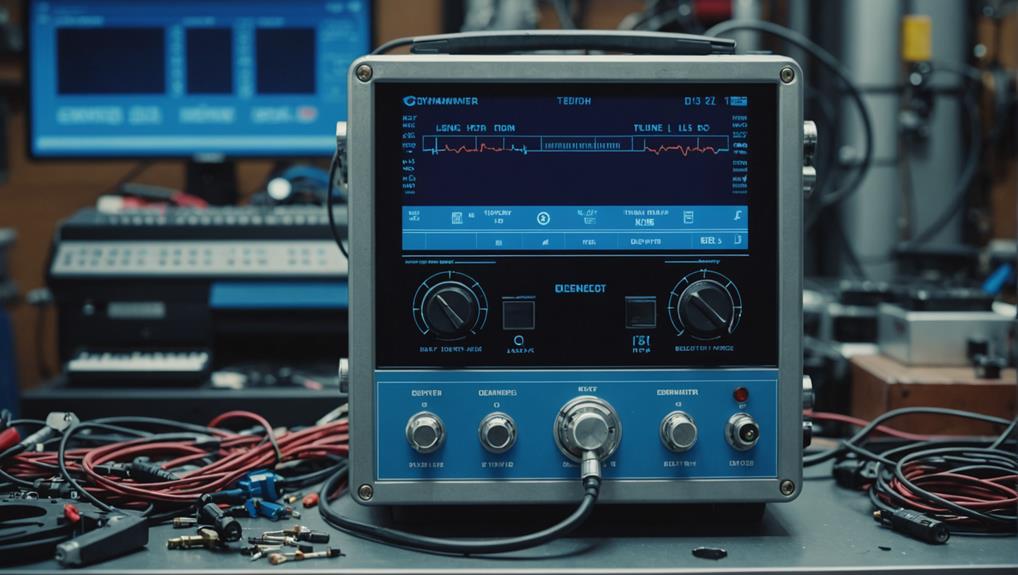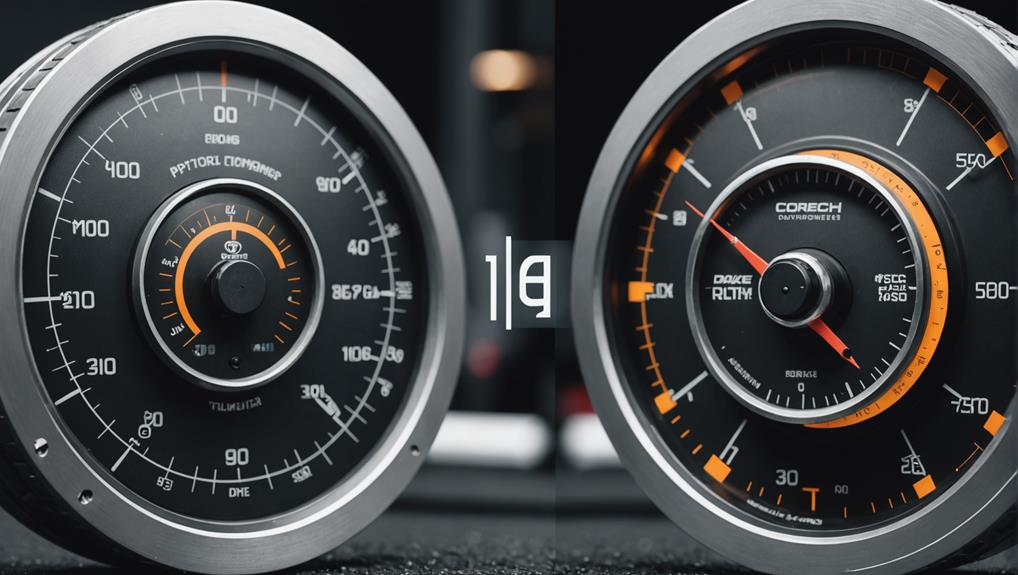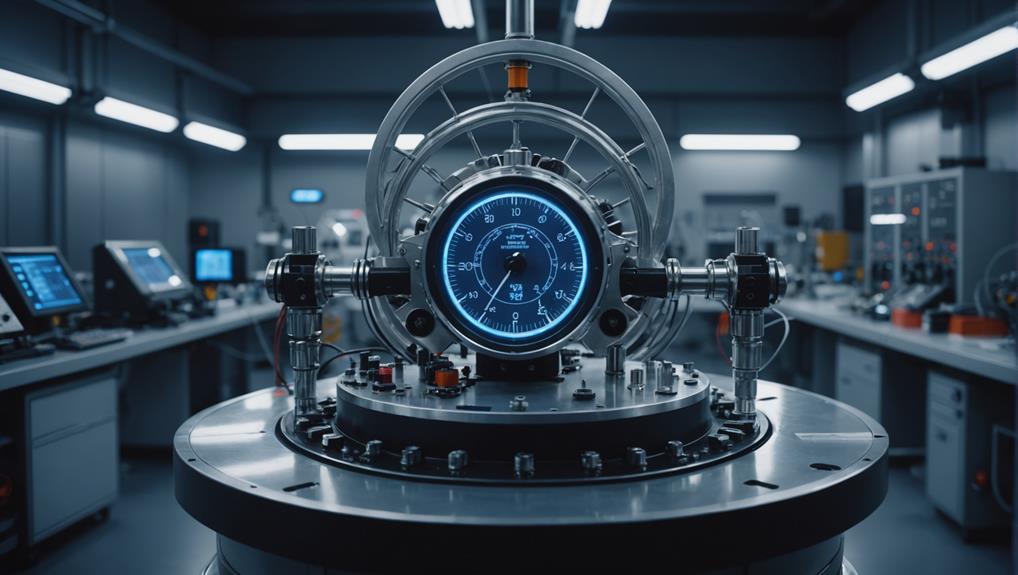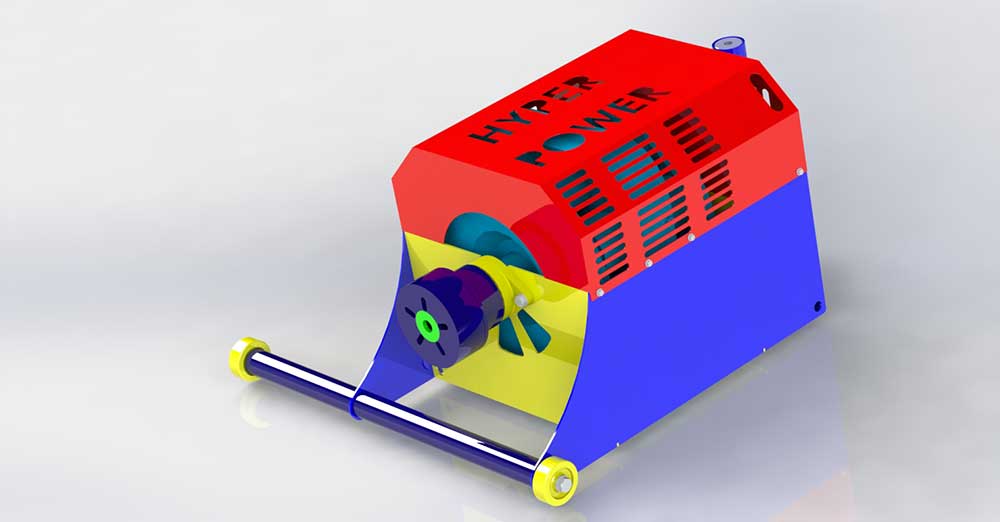
How Dynamometers Enhance Engine Diagnostics and Testing
Necessitating precise measurements, dynamometers unlock the secrets of engine performance, but what else can they reveal about engine diagnostics and testing?
To become certified in dynamometer operation, start by enrolling in training programmes to gain the necessary skills and knowledge. Get hands-on experience with dynamometers, ensuring you meet specific hour requirements.
Consider certifications from organisations like ASE and NATEF to improve your job prospects. Having a background in automotive technology is beneficial, along with completing coursework on engines, electrical systems, and safety practices.
Training programmes offer essential practical skills. Passing competency exams and engaging in continuous professional development are essential for maintaining certification.
Validating your dynamometer operation skills boosts your credibility and opens up career opportunities. Further information on eligibility, training programmes, benefits, and more is available to help you progress in this field.
Certification Process Overview
The certification process for dynamometer operation offers individuals a structured pathway to demonstrate proficiency in using this essential tool in the automotive industry. By enrolling in a training programme, aspiring dynamometer operators can acquire the necessary skills and knowledge to excel in this field. These programmes typically end with an examination that evaluates the individual's understanding of dynamometer operation. Practical experience is also a crucial component of some certifications, requiring candidates to accrue a specific number of hours working hands-on with dynamometers.
Certifications in dynamometer operation, such as those provided by ASE and NATEF, hold high esteem within the automotive industry. Attaining certification can significantly enhance job prospects by highlighting a candidate's expertise and commitment to mastering the craft. With the demand for skilled professionals in automotive technology increasing, holding a certification in dynamometer operation can distinguish individuals in a competitive job market, creating opportunities for exciting career prospects.
To become certified in dynamometer operation, individuals must meet specific eligibility requirements. This often includes completing designated training courses and acquiring hands-on experience. Applicants may also need to pass written exams or practical assessments to showcase their proficiency in dynamometer operation.
It is crucial to note that eligibility criteria can vary depending on the certifying organization or program. Some certifications may necessitate a high school diploma or equivalent as a prerequisite.
Qualifications Required
Individuals seeking certification in dynamometer operation must have a background in automotive technology or a related field. This typically involves completing coursework covering internal combustion engines, electrical systems, fuel management, ignition systems, and engine evaluation. Some programs may require hands-on experience with dynamometers and passing competency exams to demonstrate proficiency in operating the equipment.
Having knowledge of industry tools, safety practices, and job-specific tasks is crucial for success in dynamometer operation certification. Certification programs adhere to industry standards and often require ongoing professional development to maintain certification status. By meeting these qualifications, individuals can show their readiness to excel in the field of dynamometer operation and make valuable contributions to the automotive industry.
Training Programmes Available
Individuals with a background in automotive technology or a related field are typically eligible to enrol in training programmes for dynamometer operation. These programmes often require completion of specific coursework in automotive technology and may prefer applicants with prior experience in automotive mechanics. Some training programmes may even have prerequisites such as certification in ASE or NATEF.
Essential training is a vital component of these programmes, allowing participants to gain practical skills in dynamometer operation. Successfully completing a training programme can lead to industry-recognised certifications in dynamometer operation, enhancing one's credentials in the automotive industry. By enrolling in these certification programmes, individuals can further their knowledge and expertise in using dynamometers effectively and safely.
Training Programme Options
Training programmes for dynamometer operation certification offer a comprehensive curriculum covering key topics such as dynamometer types, testing procedures, and data analysis techniques. These programmes provide a structured pathway for individuals looking to improve their skills in this specialised field. Here are some training programme options to explore:
Importance of Hands-On Experience
Practical exposure to dynamometer equipment is crucial for developing proficiency and expertise in dynamometer operation. Engaging in hands-on experience is essential for acquiring the practical skills and knowledge required to set up, operate, and troubleshoot dynamometers effectively. By actively interacting with the equipment, individuals can understand its functionality and performance characteristics. Moreover, practical training nurtures critical thinking and problem-solving skills specific to dynamometer operation.
Through hands-on experience, individuals can enhance their confidence and proficiency in using dynamometers for testing and evaluation. Direct engagement with the equipment not only enhances understanding but also instils a sense of achievement and mastery. Therefore, practical training is indispensable for those aiming to excel in dynamometer operation, providing the necessary hands-on skills and knowledge to navigate the complexities of dynamometer testing and evaluation successfully.
Examples and Product Recommendations:
As you prepare for your dynamometer operation certification, it's important to understand the examination and assessment details.
The exam format typically includes written tests and practical assessments, covering topics like dynamometer calibration and test result interpretation.
To pass, candidates need to demonstrate their ability to set up test procedures, conduct accurate tests, and troubleshoot equipment effectively.
Examination Structure for Dynamometer Operation Certification
The assessment format for dynamometer operation certification typically consists of multiple-choice questions and practical assessments to evaluate both theoretical knowledge and hands-on skills.
Key elements you may encounter in the exam include:
This combination of written tests and hands-on evaluations ensures that candidates not only grasp the theoretical aspects but also possess the practical skills necessary for successful dynamometer operation. Successfully passing this exam results in certification, demonstrating your competence in this specialised field.
Certification Requirements for Dynamometer Operation
Individuals aspiring to become certified in dynamometer operation must meet specific performance standards established by the certifying body. These standards are assessed through written tests and practical evaluations. The assessments cover a range of topics, including understanding dynamometer principles, following safety protocols, and operating the equipment proficiently.
Practical tests typically involve tasks such as setting up the dynamometer, conducting tests, and accurately interpreting the results. To obtain certification, candidates must display a strong understanding of these areas and meet the performance benchmarks outlined by the certifying organisation.
Being certified in dynamometer operation indicates a high level of skill in using dynamometers to test and assess automotive components effectively. This certification underscores an individual's ability to handle these essential tools safely and competently within the automotive sector.
Benefits of Certification
Certification in dynamometer operation offers professionals in the automotive industry a significant advantage in demonstrating their expertise and commitment to excellence. By becoming certified in dynamometer operation, individuals can enjoy the following benefits:
Industry Recognition Significance
Demonstrating expertise in dynamometer operation through industry recognition signifies a high level of proficiency that can differentiate professionals in the automotive sector. Certification in dynamometer operation validates not just your skills but also your knowledge in using these tools for testing purposes. It serves as a seal of approval, highlighting your capabilities to potential employers and clients.
With industry-recognised certification, you gain a competitive edge in the job market, positioning yourself as a qualified and competent dynamometer operator. Employers highly appreciate certified professionals for their proven expertise, making certification essential for career advancement opportunities.
Continuing Professional Development Opportunities
Exploring avenues for ongoing learning and skill improvement is crucial for professionals in the field of dynamometer operation. To stay abreast of the latest trends and enhance expertise, considering the following opportunities can be beneficial:
Certification Renewal Process
Ensuring compliance with continuing education requirements is crucial to maintain active status in dynamometer operation certification. To renew certification, individuals must typically complete a set number of continuing education hours or courses. Some programmes may also necessitate passing an exam to showcase updated knowledge and skills.
Engaging in professional development activities related to dynamometer operation is vital to meeting renewal criteria. Missing renewal deadlines set by the certifying body can result in certification expiration. Staying informed about the latest industry advancements is key to maintaining certification status.
In a nutshell, achieving certification in dynamometer operation can unlock various opportunities in the industry. By completing the required training and gaining practical experience, individuals can demonstrate their skills and knowledge in using this significant tool. Certification not only confirms one's expertise but also shows a dedication to professional development. Generally, attaining certification in dynamometer operation can result in career progression and enhanced recognition in the field.
Guide Towards Further Learning:
Spark curiosity for more knowledge by inviting the reader to contact Hyper Dyno. Feel free to reach out to us if you have any questions about Dynamometer Products, Custom Solutions, Installation Setup, Training and Certification, Technical Support and Maintenance, Software Updates, Rental Services, Dynamometer Testing Services, and Accessories and Parts. This is a call to action.

Necessitating precise measurements, dynamometers unlock the secrets of engine performance, but what else can they reveal about engine diagnostics and testing?

Navigating the complexities of torque measurement requires a deep understanding of the underlying principles and mechanisms to ensure accurate results.

Precise control and optimization of engine performance await, but only for those who unlock the secrets of dynamometer-driven data analysis.

Gaining insight into the differences between inertia and brake dynamometers is crucial for ensuring accurate testing results in various industries.

Tapping into the precise measurement capabilities of dynamometers, uncover the secrets to optimizing fuel efficiency and slashing emissions in the automotive industry.

Witness the importance of rigorous safety protocols and best practices in dynamometer testing to avoid catastrophic failures and ensure accurate results.

Harnessing the nuances of precision measurement is crucial to avoiding costly errors in dynamometer testing, but what are the key factors to consider?

Witness the transformative power of dynamometers in unlocking your vehicle’s hidden performance potential, but only if you know how to harness their precision.






Hyper Power, the leading name in dynamometer solutions, offers unparalleled precision and reliability for all your performance testing needs.